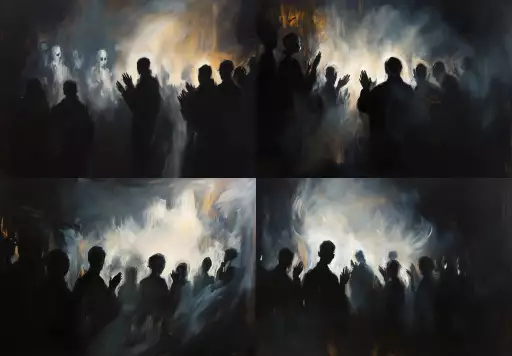Explore the Best AI Image Gallery

The AI Lens: Revolutionizing Product Photography
Product photography, once a realm solely defined by human skill and artistic vision, is undergoing a profound transformation. At the heart of this revolution lies artificial intelligence (AI), a technology poised to reshape the creative landscape by automating tasks, enhancing visuals, and unlocking new possibilities for brands.
Unleashing Creative Potential
AI-powered tools are empowering photographers and designers with innovative capabilities that transcend traditional methods. Imagine:
- AI-driven Composition: Algorithms analyze product features and background elements to suggest optimal arrangements, ensuring captivating visuals that highlight key selling points.
- Dynamic Lighting & Effects: AI can simulate various lighting scenarios, adjust color palettes, and apply realistic shadows and reflections, creating stunning product presentations even in controlled studio settings.
- Automated Background Removal: Seamlessly isolate products from cluttered backgrounds with a click, saving time and effort for post-production editing.
Applications Across Industries
The impact of AI in product photography extends far beyond the realm of e-commerce. Here are just a few examples:
- Fashion & Apparel: Generate diverse product shots showcasing different outfits, styles, and sizes, personalized for individual shoppers.
- Real Estate: Virtually stage properties with furniture and decor using AI, allowing potential buyers to visualize the space in their dream home.
- Food & Beverage: Create mouthwatering product images that capture the essence of flavor and freshness, enticing customers with captivating visuals.
Ethical Considerations
While AI offers immense potential, its crucial to address ethical considerations associated with its use in product photography:
- Transparency & Disclosure: Clearly communicate when AI is used in creating product images to maintain consumer trust and avoid misrepresentation.
- Bias Mitigation: Ensure AI algorithms are trained on diverse datasets to avoid perpetuating societal biases that may result in unfair or inaccurate product representations.
- Data Privacy & Security: Implement robust safeguards to protect customer data used in training AI models and prevent unauthorized access or misuse.
Future Trends
The future of AI-powered product photography is brimming with exciting possibilities:
- Hyper-Personalization: Generate customized product images tailored to individual customer preferences, creating unique shopping experiences.
- Interactive & Immersive Photography: Integrate AR and VR technologies to allow customers to virtually interact with products, exploring multiple angles and features in a 3D environment.
- AI-Driven Storytelling: Leverage AI to craft compelling narratives around products, enhancing their emotional appeal and resonating with target audiences.
As AI technology continues to evolve, its influence on product photography will undoubtedly become even more profound. By embracing these innovations responsibly and ethically, brands can harness the power of AI to create captivating visuals that elevate customer experiences and drive business success.



